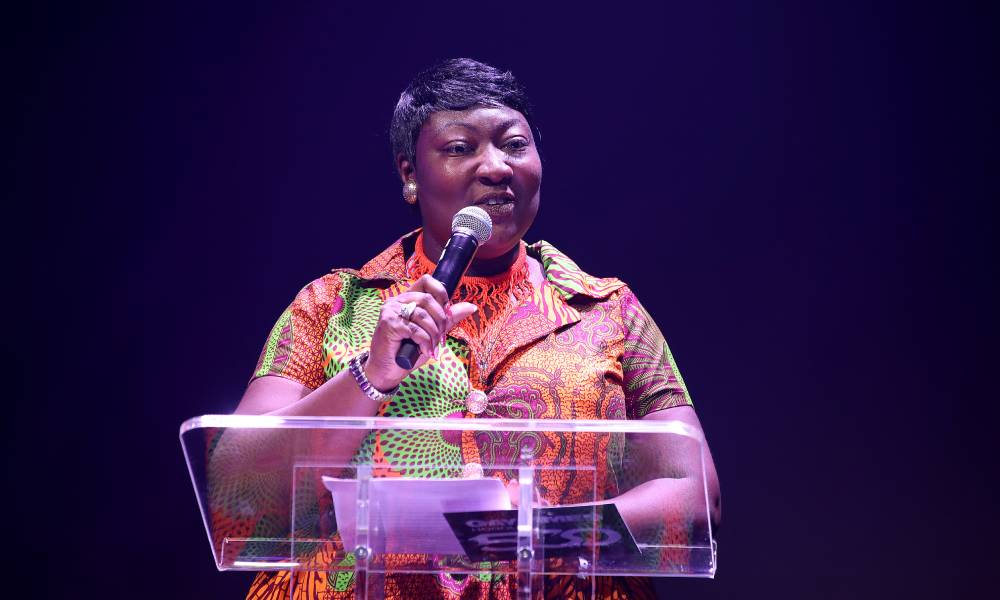Phyllis Akua Opoku Gyimah during the GAY TIMES Honours 500 at Magazine London on 21 November 2019 in London, England. (Photo by Mike Marsland/WireImage for GAY TIMES)
The legendary Lady Phyll opened up about learning to accept herself in a new interview.
The co-founder and executive director of UK Blade Pride shared her story on the Mind the Gap podcast, where she reflected on how “trying to be accepted” for who she is “was the hardest thing”.
“I didn’t realise that it was about me accepting myself first,” she said.
In the interview, she detailed her journey from growing up in a British Ghanian household to founding UK Black Pride – Europe’s largest celebration for LGBT+ people of African, Asian, Caribbean, Latin American and Middle Eastern descent.
Lady Phyll explained that founding UK Black Pride in 2005 was “not easy” because of rampant racism, homophobia, biphobia and transphobia.
“Because we live in a society whereby racism is very, very real,” she said. “Homophobia, biphobia and transphobia are rampant in societies and also different cultures as well.”
She continued: “I’m not saying it’s any more difficult to be Black and queer or brown and queer, but there are challenges that we have within our own homes where our parents and aunties and uncles are not accepting.
“They may do tolerance at some stage but some of them are not accepting.”
The idea of UK Black Pride was met with “so much resistance” other mainstream LGBT+ organisations and leaders who questioned, “who do we think we are, how dare we separate, why don’t you join ‘a normal pride’”.
She continued: “And then you have people saying how dare there be a Black pride in this country. That’s racist. We don’t have white pride.”
Lady Phyll said she thought it was difficult for her parents, especially her mother, to comprehend that her daughter is a lesbian.
She is “unapologetic” in her identity and doesn’t compromise on who she is for others. But, she said, it was difficult to apply this to her more personal relationships.
“I also had to apply that to my mother, never disregarded her or disrespected her,” Lady Phyll said. “I just knew that it felt too toxic and too heavy for me to want this … say this validation from her that was not coming so I had to do things for myself.”
She explained terms like lesbian, gay, bisexual and trans don’t “naturally translate” into Ghanain languages like Twi, Ga or Fante unless is it “derogatory”.
However, “being queer” is not “un-African”, she said, adding that anti-LGBT+ “legacies and laws”, which were left in place because of colonialism, meant queer Africans are “not able to live freely and free from violence”.
UK Black Pride will return for a three-day celebration over 2-4 July 2021. It will be a digital event, and its theme this year is “love and rage”.
